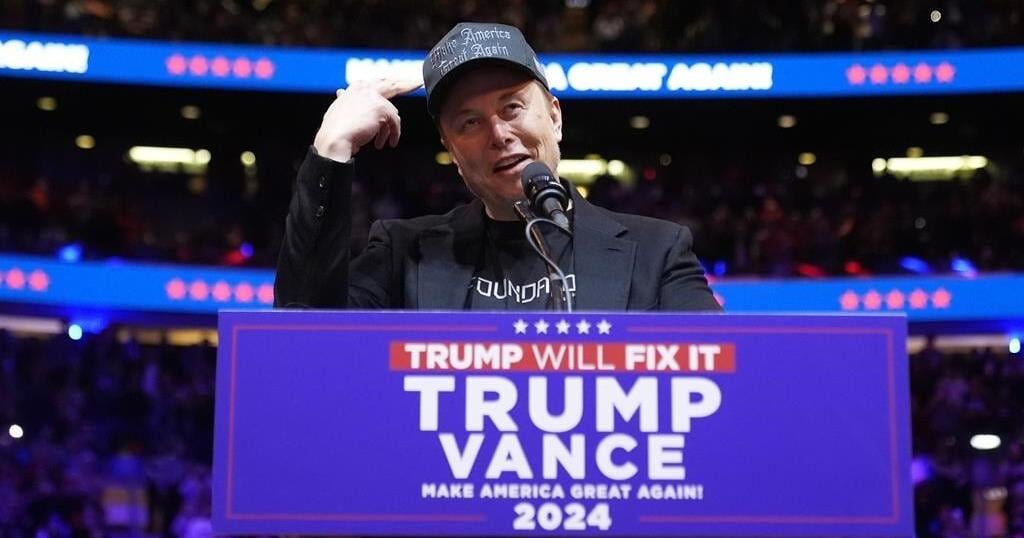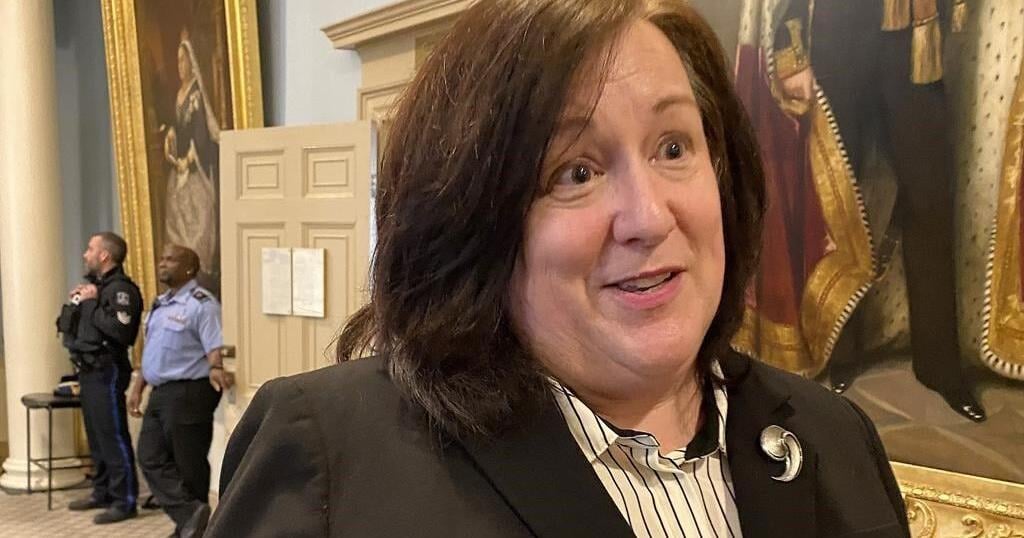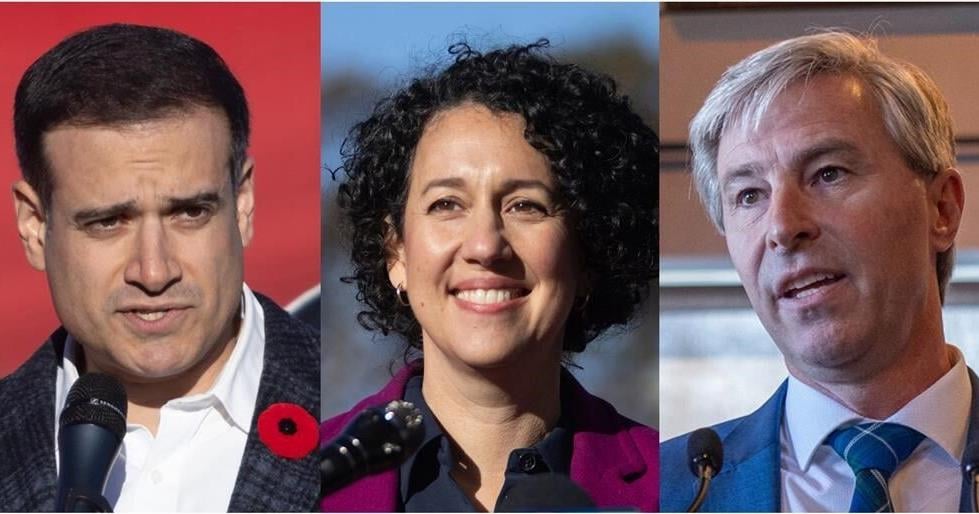As President-elect Donald Trump begins filling key posts in his second administration, social media users are pushing false claims that the 2024 election was rigged in his favor.
One such narrative claims that billionaire Elon Musk facilitated the alleged fraud with his internet service provider Starlink, manipulating the vote count through election equipment such as ballot tabulators. Starlink, a subsidiary of Musk’s SpaceX company, uses satellites to offer high-speed internet, even in remote areas.
Some rural counties used the technology during the 2024 race to access their electronic poll books.
Here’s a closer look at the facts.
CLAIM: Billionaire entrepreneur Elon Musk used his internet provider Starlink to steal the 2024 election for President-elect Donald Trump.
THE FACTS: These claims are unfounded. Election officials, including from multiple swing states, told The Associated Press that their voting equipment doesn’t use Starlink and is not even connected to the internet. States have additional security measures to ensure that the count is accurate, according to experts. Election officials and security agencies have reported no significant issues with the 2024 race.
“It is not possible that Starlink was used to hack or change the outcome of the US presidential election,” David Becker, founder and executive director of The Center for Election Innovation and Research, wrote in an email. “This, quite simply, did not happen, and could not happen, thanks to the security measures we have in place, and these conspiracy theories echo other disinformation we’ve heard over the past several years.”
Becker further explained that the country’s nearly 10,000 election jurisdictions use a wide range of voting machines that are not connected to the internet while voting occurs and that nearly all votes are recorded on paper ballots, which are audited by hand to confirm the results of electronic tabulators.
“If anyone tried to interfere with the machines to rig the election, it would be discovered through multiple means, including reconciling the registered voters who cast ballots with the number of votes, as well as the audits,” he added.
Certain jurisdictions in a few states allow for ballot scanners in polling locations to transmit unofficial results, using a mobile private network, after voting has ended on Election Day and the memory cards containing the vote tallies have been removed.
Election officials who allow this say it provides for faster reporting of unofficial election results on election night. They say the paper records of the ballots cast are used to authenticate the results during postelection reviews, and that those records would be crucial to a recount if one was needed. Computer security experts have said this is an unnecessary risk and should be prohibited.
Cybersecurity and Infrastructure Security Agency Director Jen Easterly said in a statement on Nov. 6 that CISA has “no evidence of any malicious activity that had a material impact on the security or integrity of our election infrastructure.”
Despite a lack of evidence, many on social media suggested that Starlink could indeed have been used to steal the election.
“If Trump & Elon’s ‘little secret’ was to use Starlink in swing states to tally the votes & rig the election — an investigation & hand recount is crucial. Now,” reads one X post that had been liked and shared approximately 41,700 times as of Tuesday.
Another widely shared X post states: “Elon Musk used Starlink to hack our elections so he can have nice things while inflicting pain on Americans. Are we really going to turn a blind eye to what happened and let the worst people among us run the country.”
Election officials in North Carolina, Georgia and Pennsylvania — three of the seven swing states Trump won — told the AP that their voting equipment is never connected to the internet. In some cases, this is mandated by state law.
“Satellite-based internet devices were not used to tabulate or upload vote counts in North Carolina,” said Patrick Gannon, a spokesperson for the North Carolina State Board of Elections. “In addition, our tabulated results are encrypted from source to destination preventing results being modified in transit. And no, tabulators and ballot-marking devices are never connected to the internet in North Carolina.”
The Tar Heel State prohibits its voting systems from being “connected to a network” and requires any feature that allows such a connection to be disabled. This includes the internet, as well as any other wired or wireless connections.
Gannon added that North Carolina has “no evidence of any alteration of votes by anyone” and requested that people stop spreading misinformation about elections.
Mike Hassinger, a spokesperson for the Georgia secretary of state’s office, called the claims spreading online “absolutely conspiratorial nonsense.”
“We don’t use Starlink equipment for any part of our elections, and never have,” he said. “Our election equipment is 100% air-gapped and never connected to the internet.”
The term “air-gapped” refers to a security measure that isolates a secured computer network from those that are unsecured. This means it is impossible to use the internet to manipulate the software that tallies Georgia’s votes or the memory cards on which they’re recorded, according to Hassinger. He explained that memory cards are transported by hand in secure bags with tamper-evident ties to a central elections office where votes are tabulated. There is also a chain of custody protocol in place so that their movement is well documented.
Matt Heckel, a spokesperson for the Pennsylvania Department of State, wrote in an email: “Counties do not use Starlink to transmit unofficial or official election results. No voting system in Pennsylvania is ever connected to the internet.”
A pilot program in Arizona’s Coconino, Apache and Navajo counties intended to “enhance connectivity in underserved areas” uses Starlink systems for electronic poll book synchronization, according to JP Martin, a spokesperson for the Arizona secretary of state’s office. The state’s election equipment is air-gapped, one of many security measures.
Michigan, Nevada and Wisconsin also employ stringent precautions to protect the integrity of their voting equipment.
Some posts spreading online pointed to a local news segment in which the registrar of voters in Tulare County, California, noted that internet connectivity at the county’s poll sites was improved this year thanks to Starlink. Stephanie Hill, a systems and procedures analyst for the agency, wrote in an email that “this connection is strictly for voter check-in purposes only and in no way a part of our voting system.” California is among the states that prohibit their voting equipment from being connected to the internet.
Trump is currently beating Vice President Kamala Harris in Tulare County with 60% of the vote.
Pamela Smith, president and CEO of Verified Voting, agreed that the idea that Starlink was used to rig the election is absurd.
“While Starlink provided connectivity in a number of jurisdictions for electronic poll books (EPBs) in this election, neither Starlink nor other types of communication networks play any role in counting votes,” she wrote in an email. “Our elections produce huge quantities of physical evidence. A satellite system like Starlink cannot steal that.”
—
Find AP Fact Checks here: https://apnews.com/APFactCheck.

























